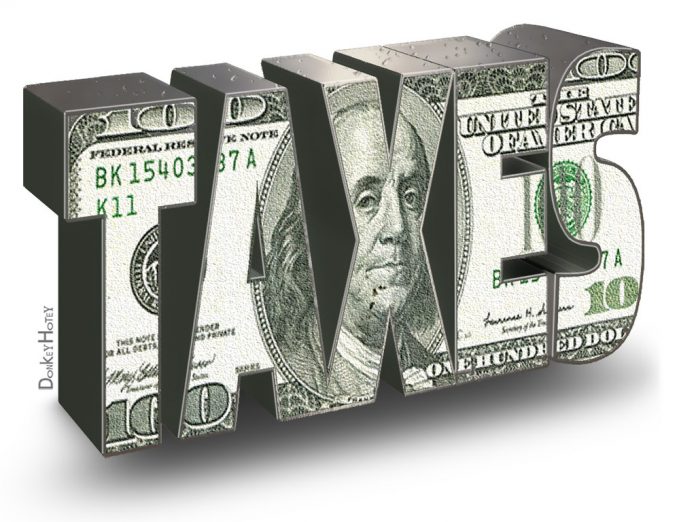Congress should extend 100 percent bonus depreciation (immediate expensing) of capital investments, set to expire at end of 2022.
Capital investment plays a vital role in the American economy, but it seldom receives the attention it deserves regarding its immense effect on workers and businesses.
According to data from the Census Bureau’s Annual Capital Expenditures Survey, in 2020 alone, U.S. nonfarm businesses spent a whopping $1.7 trillion on structures and equipment. This figure includes spending by every sector of the economy, ranging from mining, utilities and manufacturing to information technology, finance and real estate.
The tax code’s treatment of such investments matters tremendously. Businesses must weigh various factors when deciding whether to buy new equipment, and a poor national tax environment can tip the scale against such investments.
The U.S. tax code is biased against capital investment, and the situation will only worsen over the next decade unless Congress acts now. A significant factor in the expected deterioration of the U.S. investment climate is the imminent expiration of a crucial tax provision called 100 percent bonus depreciation.
As described at length in Section 168(k) of the Internal Revenue Code, 100 percent bonus depreciation allows a business to write off the total cost of new and used assets in the same year rather than amortizing, or applying, the reduction in taxable income over a longer period. This opportunity saves the business money immediately on its capital expenditures and encourages future investment.
Assets and capital equipment are nondurable goods with multi-year lives. For instance, an office building typically has a useful life of 39 years, while a computer, due to its quick obsolescence, lasts, on average, only five years. Today, businesses can deduct 100 percent of most capital expenditures directly from sales, reducing their tax exposure.
Unsurprisingly, numerous companies take advantage of this tax provision, which was most recently amended in 2017 as part of the Tax Cuts and Jobs Act. Unfortunately, it was introduced only temporarily and will begin its sunset phase-out period at the end of 2022. This means the allowance of 100 percent bonus depreciation will drop by 20 percent annually until it reaches zero after 2026.
In practice, businesses that maintain the same level of investment will increasingly be exposed to higher levels of taxation. That, in turn, will lead to fewer job opportunities and reduced economic output. That outcome does not bode well for the health of the economy, which economists are increasingly predicting is on the brink of recession.
Studies consistently show that bonus depreciation policies encourage capital investment and foster job creation. In a recent National Bureau of Economic Research working paper called Capital Investment and Labor Demand, researchers examined the effect of bonus depreciation on plant investment practices between 1997 and 2011. They found that bonus depreciation tended to lower the cost of capital investment by allowing firms to deduct equipment expenses more quickly. This, in turn, encouraged them to increase their capital stock and hire more workers. Other academic research has found depreciation policies “produce large and significant effects on capital investment,” even at the state level.
The potential expiration of the 100 percent bonus depreciation tax provision would come at a terrible time for businesses and workers. Inflation remains stubbornly high, and the national environment reflects significant economic uncertainty and continuing supply chain problems. In addition, the Federal Reserve has recently decided to raise interest rates, further depressing capital investment.
Congress has already dedicated billions of dollars to programs that encourage businesses to invest in everything from broadband infrastructure to memory chip manufacturing. The last thing lawmakers should want is to tax the sectors that it wants to flourish.
While Congress had little luck making 100 percent bonus depreciation a permanent feature of the U.S. tax code, lawmakers could propose legislation that would extend the provision for several more years. For example, extending the tax provision through 2026 would provide businesses four more years of optimal investment opportunity. This extension would give them plenty of time to make additional financial investments while planning for the future and riding out these current tumultuous times.
This critical tax provision must not be allowed to expire. The effect would devastate those current investment practices most responsible for driving economic growth.











